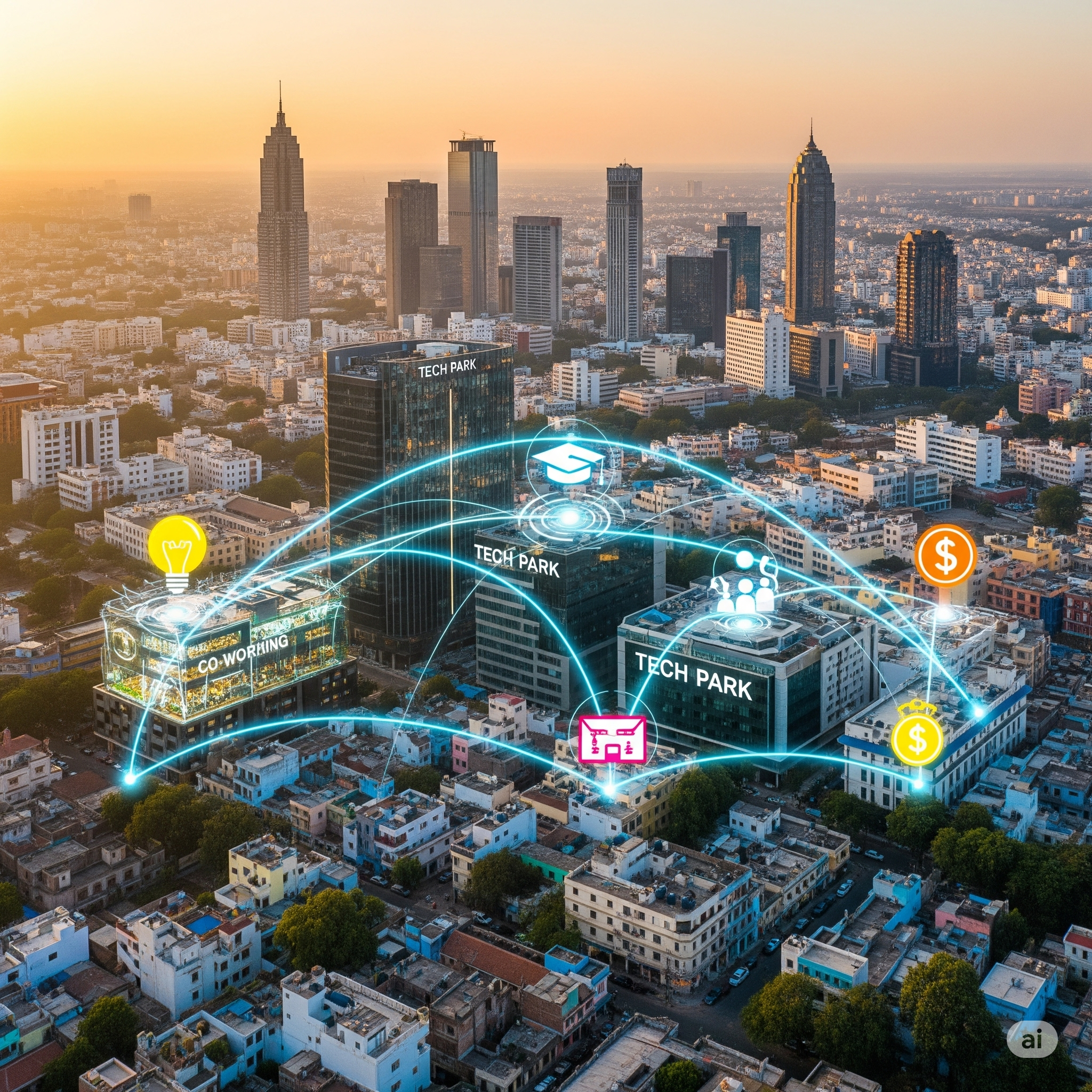Subtotal $0.00
How smaller cities are emerging as nex startup hubs in India. Tier-2 cities such as Jaipur, Indore, Kochi, Coimbatore and Bhubaneswar are gaining prominence. A mix of factors — talent returning home after metro stints, proactive state startup policies, improving digital infrastructure, and lower cost of operations — have turned these smaller cities into credible startup hubs. For investors and founders alike, the question is no longer why build in Tier-2? but how best to harness its unique advantages.
Why Founders Are Moving
Lower burn extends runway dramatically. Hiring is steadier; attrition is lower. Proximity to customers in manufacturing, textiles, agriculture or tourism sharpens product alignment and speeds iteration.
Ecosystem in the Making
Universities, co‑working spaces, city‑level angel groups and state‑run incubators now provide scaffolding that metros once monopolised. Events and demo days create visibility without the cost of a metro base.
What It Takes to Succeed
Invest early in leadership development, remote‑first processes and mentorship networks that bridge to metros for enterprise sales and fundraising. Build a strong employer brand highlighting quality of life and learning opportunities.
Signals to Watch
Several indicators show that Tier-2 hubs are entering a breakout phase. Local angel investors are leading seed rounds, giving startups their first validation. National accelerators and VC firms are setting up regional chapters to tap into the deal flow. Corporates, particularly in IT and manufacturing, are opening satellite R&D offices in these cities to access both talent and cost arbitrage.
On the demand side, government procurement programs and digital adoption by SMEs are expanding addressable markets for Tier-2 startups. The rise of hybrid work also means location is no longer a barrier to building globally competitive companies from these smaller hubs.
EqMint Takeaway
Tier-2 entrepreneurship is not a compromise or a fallback — it is increasingly a strategic edge. Founders operating from smaller cities save capital, build loyal teams, and connect directly with real economy customers. As ecosystems strengthen and global investors look for capital-efficient models, Tier-2 hubs will power the next wave of Indian innovation. The founders who succeed will be those who combine local strengths with national and global networks, scaling faster while burning less.
FAQ’s
1. Why are Tier-2 cities becoming startup hubs in India?
Tier-2 startup hubs India are growing due to lower costs, talent returning home, better infrastructure, and supportive state startup policies.
2. Which are the top emerging startup cities in India?
Emerging startup cities like Jaipur, Indore, Kochi, Coimbatore, and Bhubaneswar are attracting founders with affordable talent and strong ecosystems.
3. How do state startup policies support Tier-2 entrepreneurship?
State startup policies provide incubators, funding schemes, and procurement support, helping founders build sustainable businesses in Tier-2 cities.
4. Are remote-first teams common in Tier-2 startups?
Yes, remote-first teams are enabling Tier-2 startups to collaborate nationally and globally, lowering costs while accessing larger talent pools.
5. What signals show Tier-2 hubs are maturing?
Key signals include local angel funding, accelerators setting up chapters, and corporates opening R&D offices in emerging startup cities.



